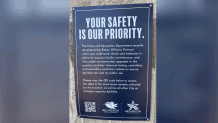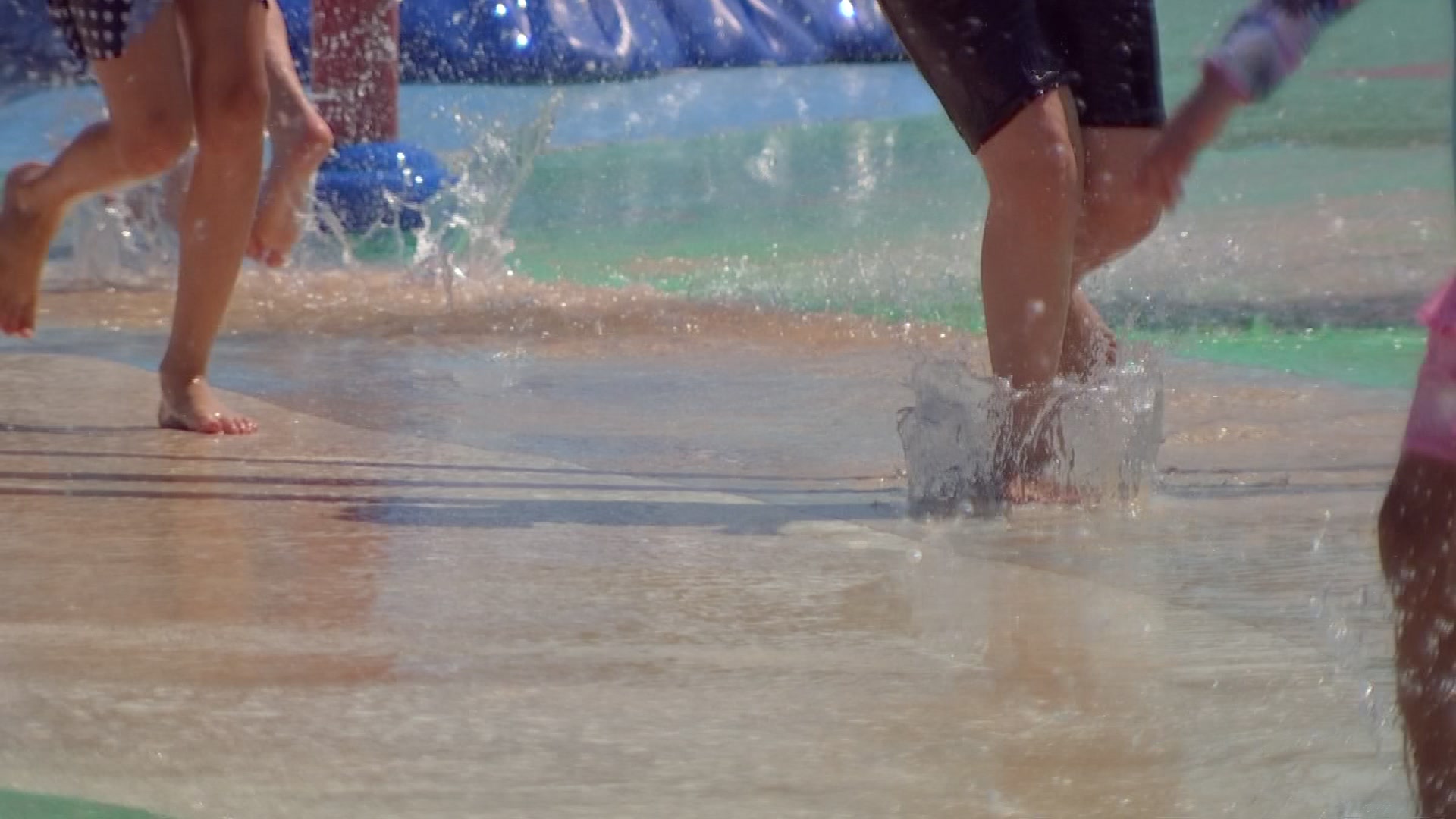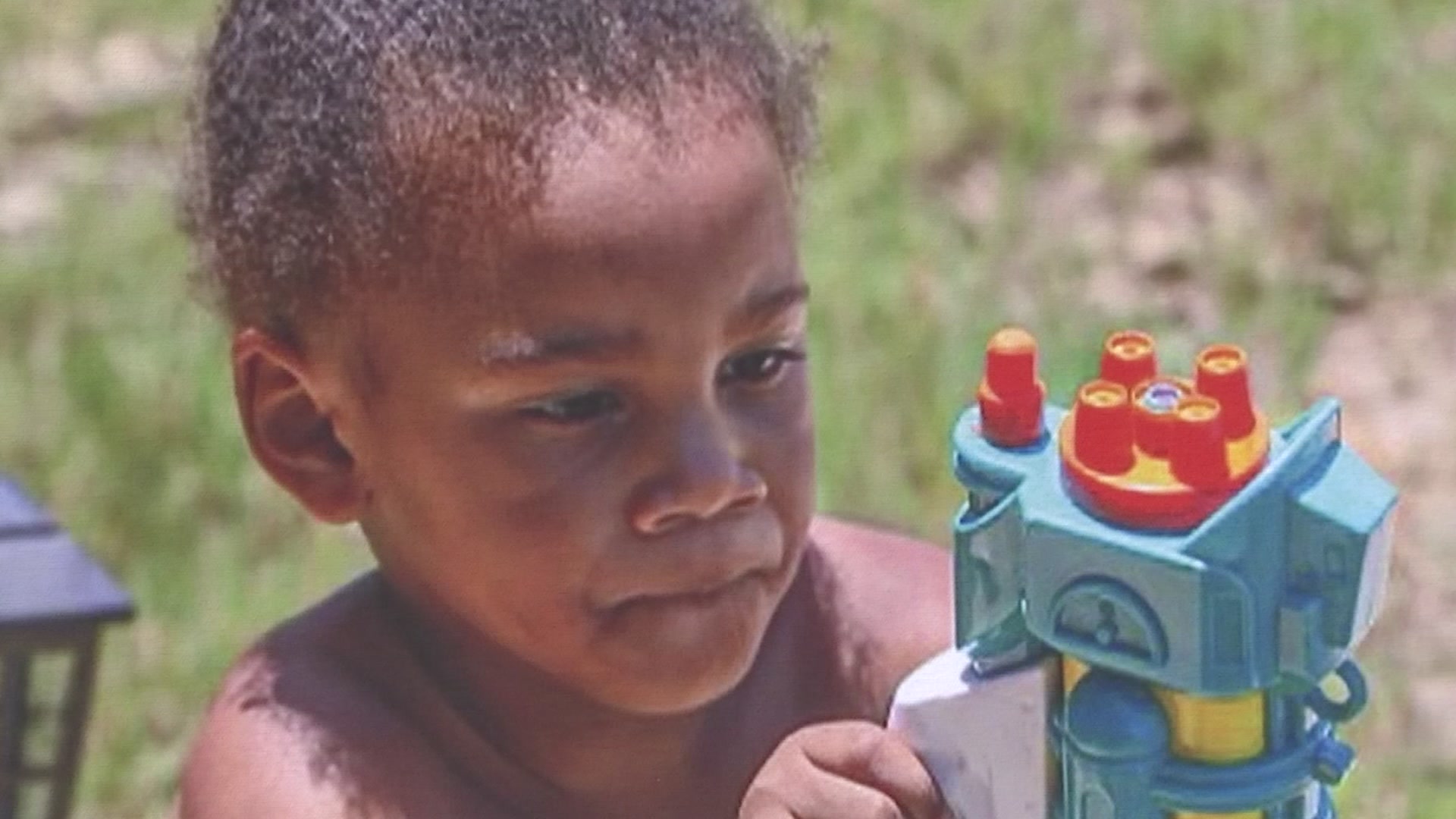
Arlington will reopen city pools and three splash pads Saturday after closing them due to a splash pad's presumptive positive test for a deadly amoeba that was confirmed Friday to be negative for the organism.
City officials said Wednesday that water samples taken at California Lane Park, once in July and once in August, were sent to an EPA lab as part of a multi-city study and that the preliminary results from the August test indicated a presumptive positive for the Naegleria fowleri amoeba.
The amoeba can result in a fatal infection in humans and was blamed for the 2021 death of 3-year-old Bakari Williams, who became ill and died after visiting Arlington's Don Misenhimer splash pad.
The city said Wednesday the EPA would do more testing on the sample and confirmed Friday that the splash pad's water sample was negative for the amoeba.
Get DFW local news, weather forecasts and entertainment stories to your inbox. Sign up for NBC DFW newsletters.
On Saturday, the city will open all pools and three of their four splash pads for the holiday weekend. Out of an abundance of caution, they said they would keep the splash pad at California Lane Park closed for additional disinfection and another round of hyperchlorination. Afterward, a follow-up test will be done to ensure no organic matter, harmful or not, is present in the park's ultra-chlorinated and UV-treated water supply.
The city is also rescinding a request for guests of the park to self-monitor for signs of illness.

THE PRESUMPTIVE POSITIVE TEST
Arlington is among a handful of cities taking part in an EPA study designed to advance best practices and standards for the management of splash pads. Water samples were taken from California Lane Park, once in July and one in August.
"On Aug. 29, the EPA sent the city a 'critical notification' that a laboratory had observed active trophozoites in the Aug. 17 water sample. These trophozoites are part of the life cycle of some organisms, one of which could develop into Naegleria fowleri," the city said in a statement. Because the type of trophozoites in the sample were unidentified, the EPA said the findings should be considered a 'presumptive positive result for Naegleria fowleri' pending further testing. The EPA recommended the city close the California Lane Park splash pad until results were available."
Although the presumptive positive test was from just one park, the city decided to close all aquatic facilities out of an abundance of caution.
While awaiting the final test results, the city said they reviewed inspection records at the park and confirmed that water chlorination levels "were continuously within established ranges throughout the summer, as measured by the automated water chemistry controllers." Additionally, the city said, "chlorination levels at the splash pad have averaged 3.5 parts per million, which is more than three times the Centers for Disease Control and Prevention's recommended levels, during operating hours."
"We recognize that our decision to temporarily close all pools and splash pads this week may have caused concern for some residents, but public health and safety is our top priority. We implemented the industry-leading Bakari Williams Protocol and made significant technology investments in our aquatics facilities since 2021 to ensure our residents are safe," Parks and Recreation Director James Orloski said in a statement Friday. "Based on the initial information we were provided by the EPA about a potential water quality concern at one of our splash pads, we made a decision we felt was best for our community while we waited for confirmation that our protocols and practices were working as they should."
The city said Friday that inspection records confirmed "that water chlorination levels at the California Lane Park splash pad and all other splash pads exceeded established ranges throughout the summer, as measured by the automated water chemistry controllers."
Arlington's inspection records can be found here.
WHAT IS ARLINGTON'S HISTORY WITH NAEGLERIA FOWLERI?
While extremely rare, the amoeba can result in a fatal infection in humans and was blamed for the 2021 death of 3-year-old Bakari Williams, who became ill and died after visiting Arlington's Don Misenhimer splash pad.
As part of a wrongful death settlement with the boy's family, the city developed the Bakari Williams Protocol which put additional safety checks in place at the city's aquatic facilities including testing the water several times per day. Arlington was to also invest in health and safety improvements at splash pads and aquatic facilities that will include technology that automatically shuts off the water when readings aren't within acceptable ranges. The facilities also were to add state-of-the-art UV water treatment processes to kill bacteria. Lastly, the city installed signage at aquatic entrances with QR codes that will allow visitors to access current information about water quality at the location.

Wednesday, an attorney for Williams's parents said the family was notified about the discovery shortly before a release went out to the public.
"The word that most fairly represents what they felt was disappointment. Even today, the city of Arlington has assured me to communicate to the family that the city of Arlington is complying with the Bakari Williams protocol," said Stephen Stewart "You know, what we hope is that the city of Arlington is not only complying, but that they're fully complying with the Bakari Williams protocol and doing everything that they expressed to the public, and that they expressed to this family, and that was made part of our case, to make sure that these splash pad water features are going to be safe."
SPLASH PAD SAFETY
BAKARI WILLIAMS PROTOCOL
The City of Arlington shared the following information about the steps taken to improve safety at its aquatics facilities.
"In 2022, Arlington developed new and industry-leading protocols for aquatics facility maintenance and completed nearly $650,000 in improvements to pools and its four splash pads. Improvements included recommended mechanical upgrades to chemical testing, controllers, and secondary sanitation systems at Arlington aquatics facilities. These rigorous protocols exceed federal, state, and industry minimum standards and include:
- Automated water chemistry controllers with advanced sensors and features designed to produce safe and clean water and automatically shut off any splash pads where water readings are not in the acceptable ranges.
- Manual water quality testing by staff three times daily, exceeding the state requirement of one test per day.
- Chlorine minimum levels between 2.5 ppm and 5 ppm for all splash pads, exceeding the state minimum requirement of 1 ppm.
- Additional staff trained as Certified Pool Operators.
- Addition of QR codes on signs at all aquatics facilities, allowing visitors to access up-to-date water quality information via smartphone devices.
- A departmental reorganization placed aquatic technicians under the operations division, creating a team of other skilled trades groups to work together to ensure the highest quality of work.
- New digital water quality testing capabilities reduce human error by eliminating visual inaccuracies in the testing process. Upgrades to the secondary sanitation process, including a state-of-the-art ultraviolet (UV) system at splash pads.
- Software that replaces the City's handwritten record process by remotely providing real-time water quality data and inspection records to aquatics employees through an app.
WHAT IS PRIMARY AMEBIC MENINGOENCEPHALITIS (PAM)?
PAM is a rare and often fatal infection caused by the Naegleria fowleri ameba. The parasite, commonly known as the brain-eating amoeba, typically infects people when contaminated water enters the body through the nose. Once the ameba enters the nose, it travels to the brain where it causes PAM, which is usually fatal.
The Centers for Disease Control and Prevention report, "Infection typically occurs when people go swimming or diving in warm freshwater places, like lakes and rivers. In very rare instances, Naegleria infections may also occur when contaminated water from other sources (such as inadequately chlorinated swimming pool water or heated and contaminated tap water) enters the nose 1-4. You cannot get infected from swallowing water contaminated with Naegleria."
The risk of N. fowleri infection is very low, with 37 reported infections in the United States between 2010 and 2020, and only 151 since 1962, according to the CDC. Most infections, according to CDC data, present in July and August.
Symptoms of PAM typically present within nine days of infection, according to the CDC. Other than this child, there have been no other instances of this infection reported to Tarrant County Public Health.
Prior to the death of Bakari Williams, the most recent case of PAM in North Texas claimed the life of 10-year-old Lily Avant who died in 2019 nearly a week after doctors confirmed she had contracted Naegleria fowleri swimming in a river near her home in Whitney.
The Kyle Lewis Amoeba Awareness Foundation was created to raise awareness about the deadly disease and offers life-saving nose plugs for parents and their children.



